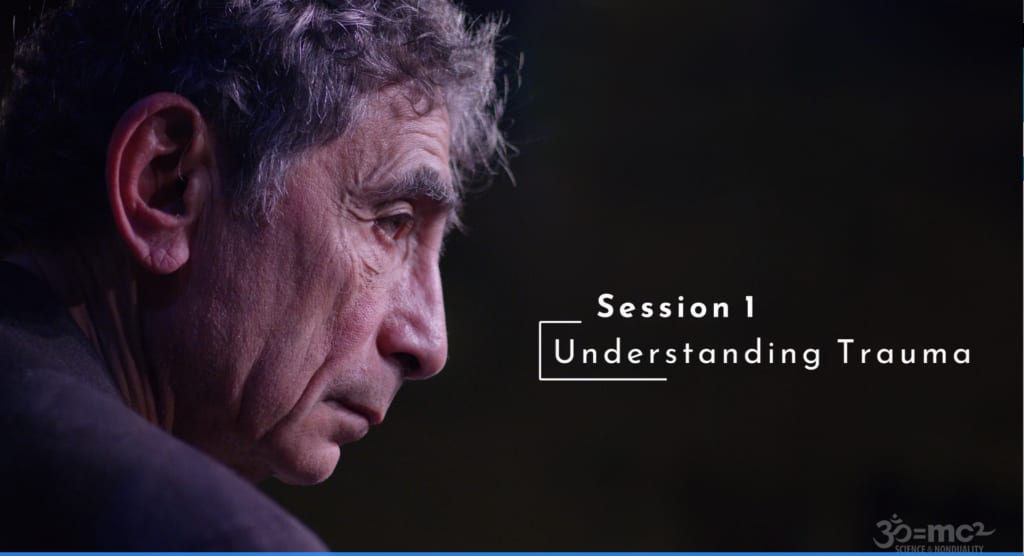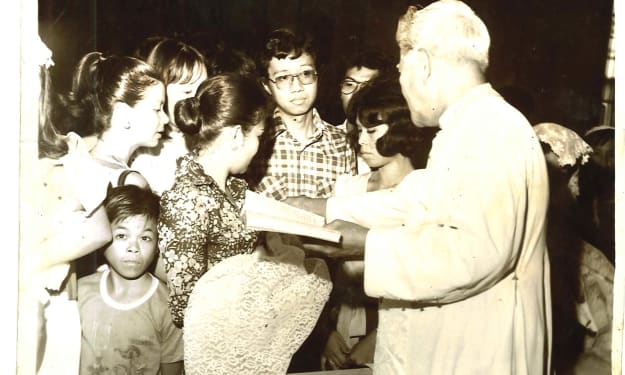Understanding Trauma
Disconnection to self is the greatest wound

These are my notes and reflections on "Understanding Trauma", session 1 of Returning to Wholeness: A Guide to Understanding and Integrating Trauma, a 12-Lesson online course with Gabor Mate.
In the beginning, Gabor quoted A.H. Almaas:
"The fundamental thing that happened and the greatest calamity is not that there was no love or support in childhood. The greatest calamity which is caused by that first calamity is that you lost the connection to your essence. That is much more important than whether your father or mother loved you or not."
The fundamental trauma, according to Gabor, was the loss of connection to one's self. The disconnection to self is the greatest wound. The wisdom of trauma is that our traumas can lead us back to ourselves. Our traumas are not random. The wounds that we sustain, and how we deal with those wounds are specific manifestations of where we lost connection to ourselves. They can be pathways back to ourselves. How our traumas manifest, how we relate to them can teach us to be ourselves. They can restore that connection we lost in the first place.
Gabor said that we could take two broad attitudes towards our trauma. One would be to resent it, hate it, and want it to go away. Of course, we want these but these approaches do not help. These approaches leave us stuck in our trauma. It's not wrong wanting to let go of our dysfunctional ways. It is just they do not help us.
What is helpful according to Gabor is to be curious about it. Maintain that curiosity and at every point, ask ourselves: "What can this teach me?", "What can this teach me?", "What can this teach me?"... A fundamental principle of this work as Gabor envisions it is that there's nothing wrong with any of us. The only thing that's wrong is that we think that there's something wrong. Even that's not wrong. There's a good reason we think that way. Instead of asking "What's wrong here?", we could ask "What does this mean?", "Where did it come from?", "What did I make it mean?", "What can I learn from it?"

Reflection
Before I became aware of Gabor's work, I had decades of practical experience with the Inner Space Interactive Sourcing techniques at the Clairvision School of Meditation. As described on their web page:
The purpose of the Inner Space Interactive Sourcing technique isn't to know your past lives, but to know yourself, here and now.
I recognise a congruence with what Gabor has said about the wisdom of trauma. I've had a lot of very vivid, sensorial regression experiences as a regression client. At first, I was excited about the sensations I was experiencing and decoding the stories behind them. Was that a Wooly Mammoth? Was I in the Himalayas? Was I a warrior? The stench of death. Catacombs. Rats. Was this during the plague? My garment is itchy and drapey. Was I a monk? Oh is that how it feels like to have sex as a young woman? The barn. The horses. The hay. Oh, the metallic stench of freshly exposed blood. And so on...
As I received and gave more and more regression sessions, it became much less about knowing what the story was behind the past life but much more about experiencing the visceral sensations of me actually being there when the event was happening in real-time. More importantly from each regression session, I was getting a sense of where the charge from these past events was still operating in my emotional body in the present moment.
In the practice of inner space interactive sourcing, we do not refer to traumas as referenced in Gabor's work. We work on samskaras. To me, this sourcing technique has a more transpersonal & spiritual flavour in contrast to the more personal & psychological flavour of the trauma approach. As described in Samuel's book on Regression:
Samskara is one of the most important Sanskrit terms in Hindu philosophy. Yoga, the union with the Higher Self, is said to be achieved as soon as the last samskara has been worked out. Therefore the primary objective of all yogas, or paths of self-transformation, is to eradicate the samskaras of the mind. This is why it is so important for those who to want to know themselves, or rather their Self, to have a clear vision of all the mechanisms of their samskaras.
Over time I recognised in my regression sessions the theme of being abandoned. This is interesting because, in this life, my mother left me when I was an infant. I did not meet her until I was 13 years old. This realisation echoes what Gabor said: "Our traumas are not random. The wounds that we sustain, and how we deal with those wounds are specific manifestations of where we lost connection to ourselves."
Instead of trying to suppress, numb, ignore or run away from the pain each time I feel abandoned, there's another choice I could make. I could be curious about it. I could ask: "What does this mean?", "Where did it come from?", "What did I make it mean?", "What can I learn from it?"
Practice
In the next 12 weeks after reading this, I invite you to practice being curious every time you feel charged, activated or dysregulated by something. In my experience, the key would be to pause, slow down before the automatic machinations of our nervous system takes over. And the key to this initial step is to remember to be curious. Try it and message me to let me know how was your experience of this experiment.
You can also message me if you want to experience past life regression. Finally, if you want to go deeper into this and related topics I invite you to join LIMINAVERSITY, a community of people learning to live well.
About the Creator
Oliver James Damian
I love acting because when done well it weaves actuality of doing with richness of imagination that compels transformation in shared story making.






Comments
There are no comments for this story
Be the first to respond and start the conversation.